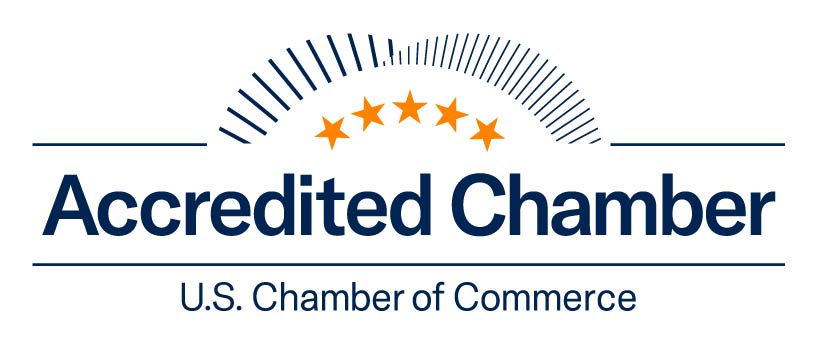Chambers of commerce face many misconceptions regarding how they operate or what they actually are. According to the American Chamber of Commerce Executives (ACCE), “even though almost everyone has heard of the term … the lack of understanding is in large part self-inflicted because chambers in various towns, cities, regions, states and even nations focus on different things and actually operate in different ways.”
The term “chamber of commerce” is one of the oldest and most well-recognized brands in the world, but there is significant public misunderstanding of its meaning. The ACCE compares the desire to apply universal truths to chamber of commerce models to the Chinese parable of the seven blind men touching different parts of an elephant and coming away describing it differently (“It’s a snake . . . no it’s a tree . . . no it’s a brush on a rope . . .”). In all cases, the whole of a chamber of commerce is greater than the sum of its parts, programs, people and participants.
Chamber missions vary, but they all tend to focus on similar goals like building attractive communities, promoting the community, ensuring prosperity through a pro-business climate, representing the unified voice of the business community and connecting the community through successful networks. 
Chambers of commerce are not governmental organizations and receive no direct government funding. Each chamber is a separate and independent entity and these individual entities are not connected by governance or funding. Most chambers in the U.S. operate exclusively as 501(c)(6) non-profit corporations. This status gives the chamber authority under state and federal tax rules to represent their members in public policy debates. Businesses and other employers pay dues to belong to the chamber and expect to receive the benefits of membership as long as they continue to invest in the organization.
One of the things that the general public and businesses have difficulty understanding is how the chamber arrives at a decision on policy or how they “take a position” on issues affecting the community as a whole. Because chambers do not operate in the same manner as a Better Business Bureau or trade association, which has a specific hierarchical structure, it is sometimes confusing to see how hundreds or thousands of businesses in a membership can speak with one voice.
The chamber is designed to support business. When the membership identifies public issues, the chamber’s job is to develop a specific position. The Jefferson Chamber has several committees in place in which members have a platform to voice their opinions. The committees and the Board of Directors are all made up of volunteer members.
After an issue is introduced and reflected upon in a committee, the issue is sent to the Executive Committee, made up of committee chairs, the executive director and board members. This is where they will clarify and articulate a recommendation to the full Chamber Board of Directors. The Board will then review the issue and recommendations from the Executive Committee and have the options by consensus to be for or against a specific position, request that the position go back through the committees for further discussion and more input, or request recommendations from state or national organizations when larger issues are considered.
Although local businesses are not required to join a chamber, the chamber is still working on behalf of those businesses and speaking for them because its membership is made up of numerous employers and leadership who have meaningful insight and impact on policy.
Membership in the chamber offers many advantages for business success not enjoyed by non-members. Members become part of a network with similar community interests and concerns and are able to interact with like-minded business owners and professionals. The chamber provides valuable tools to help business grow and helps increase global awareness of the community and its commerce. Members have full-time representation and full-time results.
The Jefferson Chamber of Commerce works on behalf of its members to implement relevant and informative programming, exclusive benefits and to provide opportunities to build relationships.
If you are interested in being a part of your local chamber of commerce, please join online at www.jeffersonchamber.org or call the Chamber to set up an appointment at (504) 835-3880.


